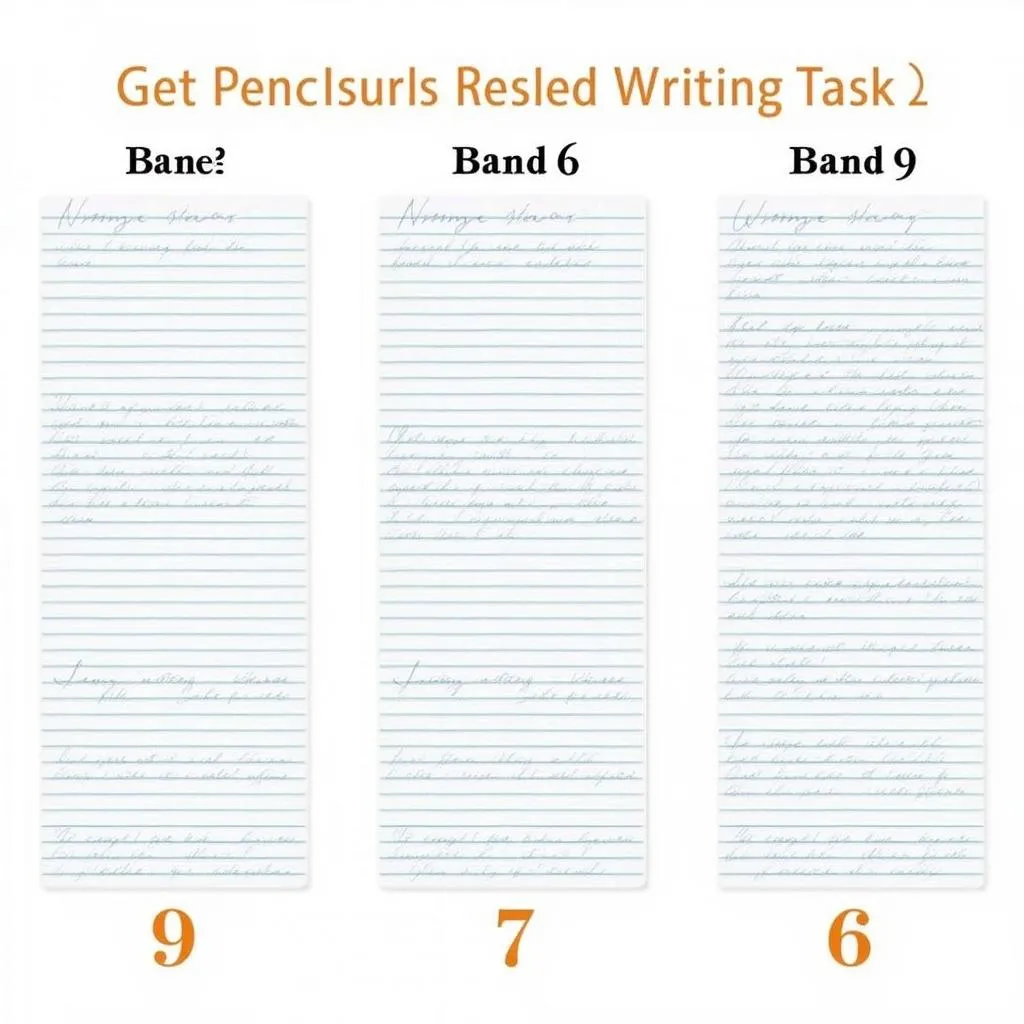The topic of government regulation of unhealthy food advertising is a recurring theme in IELTS Writing Task 2. Based on analysis of past exam questions and current trends, this issue is likely to appear frequently in future tests. Let’s examine a relevant question that has been asked in recent IELTS exams:
Some people think that governments should ban advertisements for unhealthy food and drink to reduce the health problems caused by obesity. To what extent do you agree or disagree?
This question directly addresses the debate on should governments regulate advertising of unhealthy foods, making it an excellent topic for our sample essays.
Analyzing the Question
The question asks for your opinion on whether governments should prohibit advertising for unhealthy food and beverages to combat obesity-related health issues. Key points to consider:
- The main topic is government regulation of food advertising
- The focus is specifically on unhealthy food and drink
- The purpose of the proposed ban is to reduce health problems caused by obesity
- You need to state your level of agreement or disagreement with this proposal
Sample Essays
Band 9 Essay
In recent years, there has been growing concern about the impact of unhealthy food advertising on public health, particularly in relation to rising obesity rates. While some argue that governments should impose a blanket ban on such advertisements, I believe that a more nuanced approach involving stricter regulations rather than an outright ban would be more effective and balanced.
Undoubtedly, the prevalence of unhealthy food advertising has contributed to poor dietary choices and subsequent health issues. Constant exposure to tempting images of high-calorie, low-nutrient foods can shape eating habits, especially among children and young adults who are particularly susceptible to marketing influences. By limiting these advertisements, governments could potentially reduce the allure of unhealthy options and encourage healthier food choices.
However, a complete ban on unhealthy food advertising presents several challenges. Firstly, it raises questions about freedom of speech and commercial expression. Secondly, defining what constitutes “unhealthy” food can be complex and subjective, potentially leading to inconsistent application of the ban. Moreover, a total prohibition might drive advertising underground or into less regulated channels, making it harder to monitor and control.
Instead, I propose that governments should implement stricter regulations on food advertising. This could include measures such as:
- Restricting the timing and placement of unhealthy food ads, particularly during children’s viewing hours
- Mandating clear nutritional information in all food advertisements
- Requiring health warnings on ads for foods high in sugar, salt, or unhealthy fats
- Incentivizing the promotion of healthier food options
These regulations would help mitigate the negative impact of unhealthy food advertising while still allowing companies to market their products responsibly. Additionally, governments should invest in public health education campaigns to improve nutritional literacy and empower consumers to make informed choices.
In conclusion, while banning unhealthy food advertisements may seem like a straightforward solution to obesity-related health problems, a more balanced approach through stricter regulations and education would be more effective and sustainable in the long run. By combining responsible advertising practices with improved public awareness, we can create a healthier food environment without resorting to outright prohibition.
(Word count: 345)
 IELTS essay on regulating unhealthy food advertising
IELTS essay on regulating unhealthy food advertising
Band 7 Essay
The issue of whether governments should ban advertisements for unhealthy food and drink to address obesity-related health problems is a complex one. While I agree that action needs to be taken to combat the rising rates of obesity, I believe that a complete ban on such advertisements is too extreme and that other measures would be more effective.
It is true that advertisements for unhealthy foods can contribute to poor eating habits, especially among children and young people. These ads often make unhealthy options seem appealing and can create cravings for high-calorie, low-nutrient foods. By banning these advertisements, governments could potentially reduce the exposure to unhealthy food choices and encourage healthier eating habits.
However, I think there are several reasons why a complete ban may not be the best solution. Firstly, it could be seen as an infringement on freedom of speech and commercial rights. Secondly, defining what constitutes “unhealthy” food can be challenging and may lead to disputes. Additionally, a ban might not address the root causes of obesity, such as lack of education about nutrition or limited access to healthy food options.
Instead of a ban, I believe governments should focus on other strategies to promote healthier eating habits. These could include:
- Implementing stricter regulations on food advertising, such as limiting ads during children’s TV programs
- Requiring clear nutritional labeling on all food products and in advertisements
- Investing in public health education campaigns to improve nutrition knowledge
- Providing incentives for companies to advertise healthier food options
By combining these approaches, governments can create a more balanced strategy that addresses the issue of unhealthy food advertising while still allowing for commercial freedom and consumer choice.
In conclusion, while I agree that action needs to be taken to address obesity-related health problems, I do not think a complete ban on unhealthy food advertisements is the answer. A more nuanced approach involving regulations, education, and incentives would be more effective in promoting healthier eating habits and reducing obesity rates.
(Word count: 329)
Band 6 Essay
Nowadays, many people think governments should stop companies from advertising unhealthy food and drinks to help reduce health problems caused by obesity. I partly agree with this idea, but I think there are also other things that can be done.
On one hand, banning adverts for unhealthy food could help people make better choices. When we see lots of ads for fast food or sugary drinks, it can make us want to buy these things even if they are not good for our health. This is especially true for children who might not understand that these foods can be bad for them. If we don’t see these ads, we might not think about buying unhealthy food as much.
However, I don’t think banning all adverts for unhealthy food is the best solution. It might be difficult to decide which foods are “unhealthy” and which are okay to advertise. Also, people should have the freedom to choose what they eat, and companies should be allowed to tell people about their products.
I think there are other ways to help people eat better and be healthier:
- Governments can make rules about when and where unhealthy food can be advertised, like not showing these ads when kids are watching TV.
- Schools can teach children about healthy eating and how to make good food choices.
- Governments can encourage companies to make healthier food by giving them rewards or lower taxes.
- We can make sure all food has clear labels that show how healthy or unhealthy it is.
In conclusion, while stopping adverts for unhealthy food might help a little bit, I think it’s better to use different methods to help people make healthier choices. By teaching people about good nutrition and making it easier to choose healthy foods, we can reduce obesity without completely banning adverts.
(Word count: 298)
Explanation of Band Scores
Band 9 Essay
This essay demonstrates all the qualities of a Band 9 response:
- Task Response: The essay fully addresses all parts of the task, presenting a clear position with a fully developed response. It considers multiple aspects of the issue and provides a nuanced view.
- Coherence and Cohesion: Ideas are logically organized with clear progression throughout. Paragraphs are well-linked, and cohesive devices are used effectively.
- Lexical Resource: A wide range of vocabulary is used with very natural and sophisticated control of lexical features. Rare minor errors occur only as ‘slips’.
- Grammatical Range and Accuracy: A wide range of structures is used with full flexibility and accuracy. Errors are extremely rare.
Band 7 Essay
This essay shows the characteristics of a Band 7 response:
- Task Response: The essay addresses all parts of the task, although some aspects are covered more fully than others. A clear position is presented and supported.
- Coherence and Cohesion: Information and ideas are logically organized. There is a clear overall progression, and cohesive devices are used effectively, although not always with complete accuracy.
- Lexical Resource: A sufficient range of vocabulary is used to allow some flexibility and precision. There are occasional errors in word choice, but these do not impede communication.
- Grammatical Range and Accuracy: A variety of complex structures is used with some flexibility. There are occasional errors, but these rarely reduce communication.
Band 6 Essay
This essay displays the features of a Band 6 response:
- Task Response: The essay addresses the task, although some aspects are dealt with more fully than others. The format is appropriate, and a clear position is generally maintained.
- Coherence and Cohesion: Information and ideas are generally arranged coherently, and there is a clear overall progression. Cohesive devices are used but may be overused or underused.
- Lexical Resource: An adequate range of vocabulary is used for the task. Some errors in word choice occur, but they do not impede communication.
- Grammatical Range and Accuracy: A mix of simple and complex sentence forms is used. There are some errors in grammar and punctuation, but they rarely reduce communication.
 IELTS Writing Task 2 sample essays
IELTS Writing Task 2 sample essays
Key Vocabulary
- Regulation (noun) /ˌreɡjʊˈleɪʃən/ – an official rule made by a government or other authority
- Obesity (noun) /əʊˈbiːsəti/ – the state of being very fat or overweight
- Nuanced (adjective) /ˈnjuːɑːnst/ – characterized by subtle shades of meaning or expression
- Prevalence (noun) /ˈprevələns/ – the fact or condition of being prevalent; commonness
- Susceptible (adjective) /səˈseptəbl/ – likely or liable to be influenced or harmed by a particular thing
- Incentivize (verb) /ɪnˈsentɪvaɪz/ – to encourage or motivate (someone) to do something
- Mitigate (verb) /ˈmɪtɪɡeɪt/ – to make less severe, serious, or painful
- Infringement (noun) /ɪnˈfrɪndʒmənt/ – the action of breaking the terms of a law, agreement, etc.
- Nuanced (adjective) /ˈnjuːɑːnst/ – characterized by subtle shades of meaning or expression
- Sustainable (adjective) /səˈsteɪnəbl/ – able to be maintained at a certain rate or level
These vocabulary items are crucial for discussing the topic of government regulation of unhealthy food advertising. They demonstrate a sophisticated understanding of the subject and can help elevate your essay to a higher band score.
In conclusion, the issue of should governments implement stricter regulations on fast food advertising is likely to remain a popular topic in IELTS Writing Task 2. Similar questions you might encounter could include:
- To what extent should governments control the marketing of junk food to children?
- Do you think banning fast food advertisements would be an effective way to combat obesity?
- Should companies be held responsible for the health impacts of their food products?
To practice, try writing your own essay on one of these topics or on the main question discussed in this article. Feel free to share your essay in the comments section for feedback and discussion. Remember, regular practice is key to improving your IELTS Writing skills!

